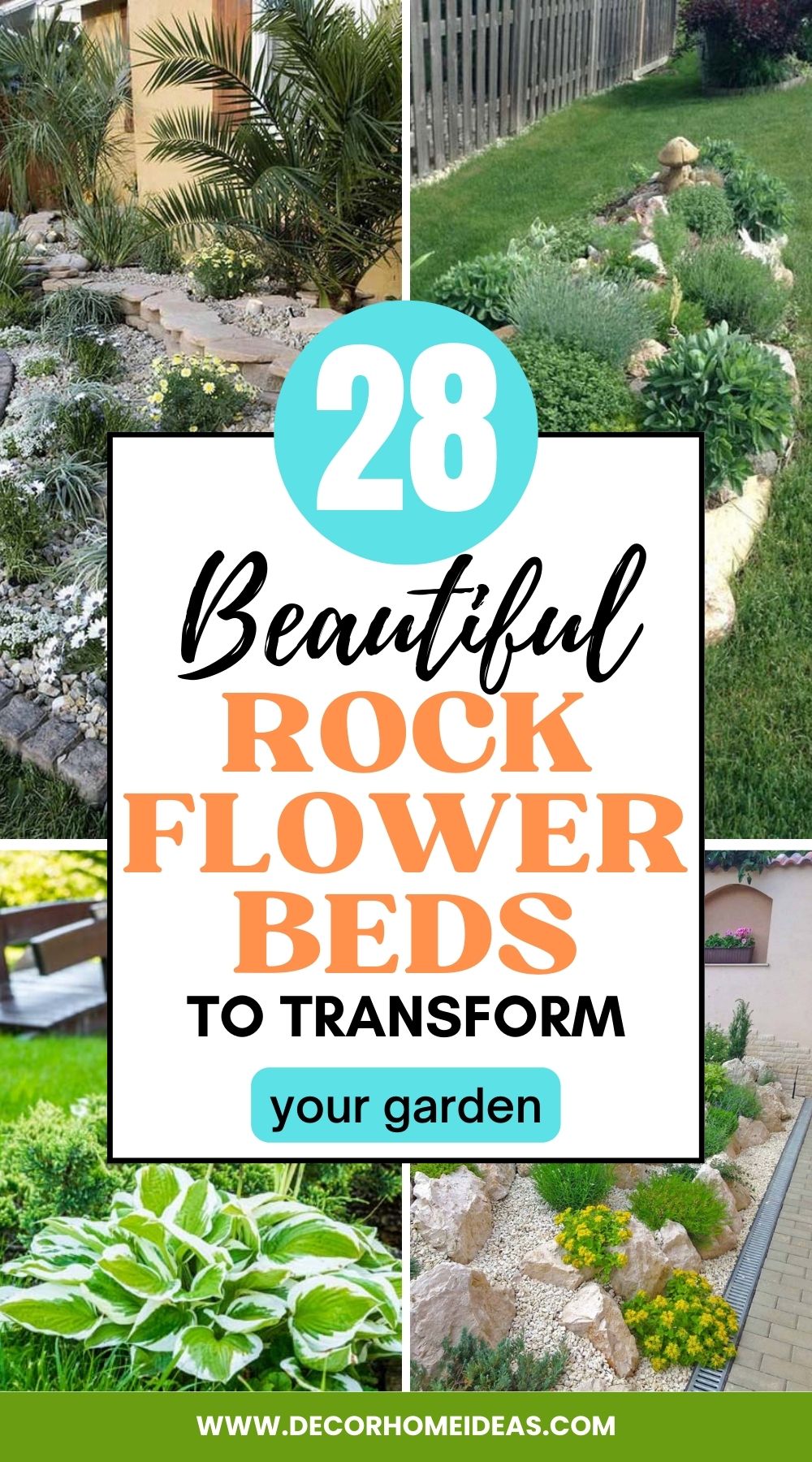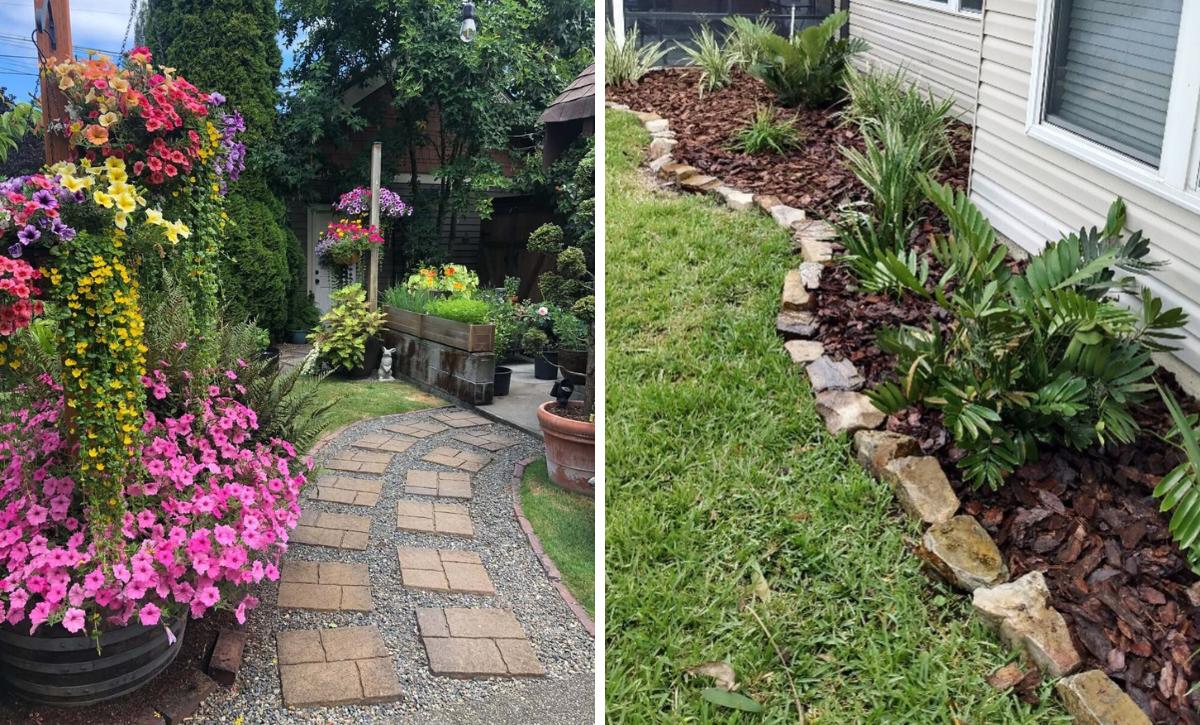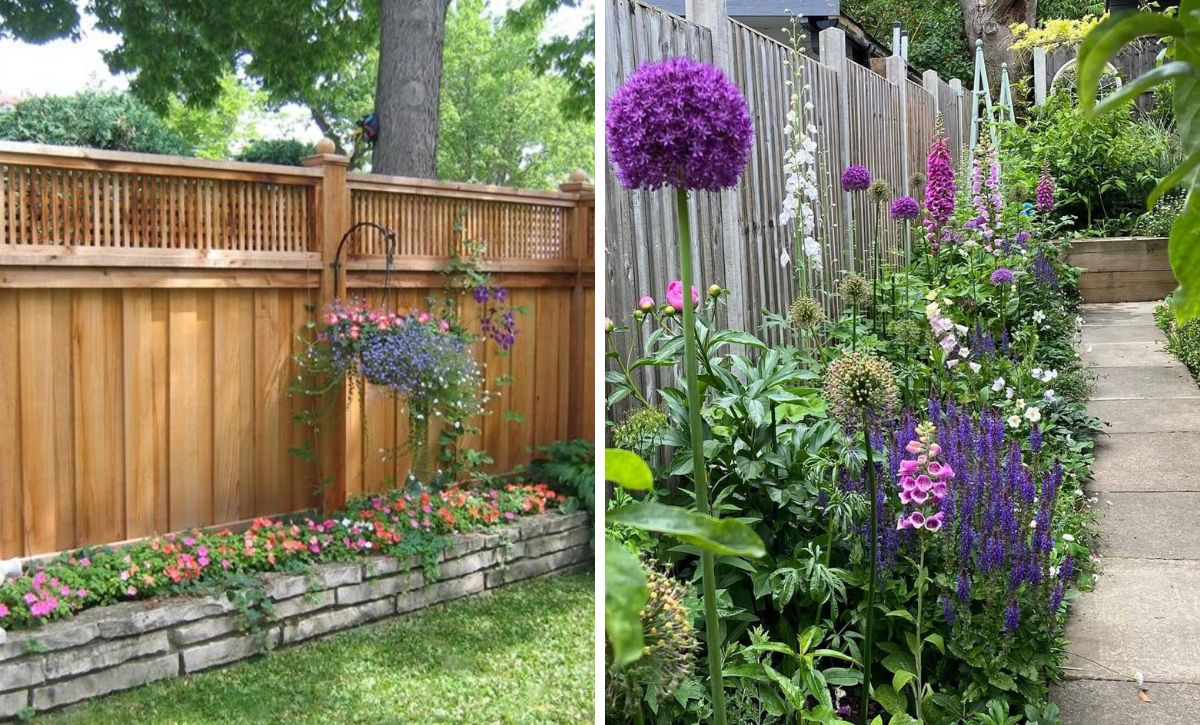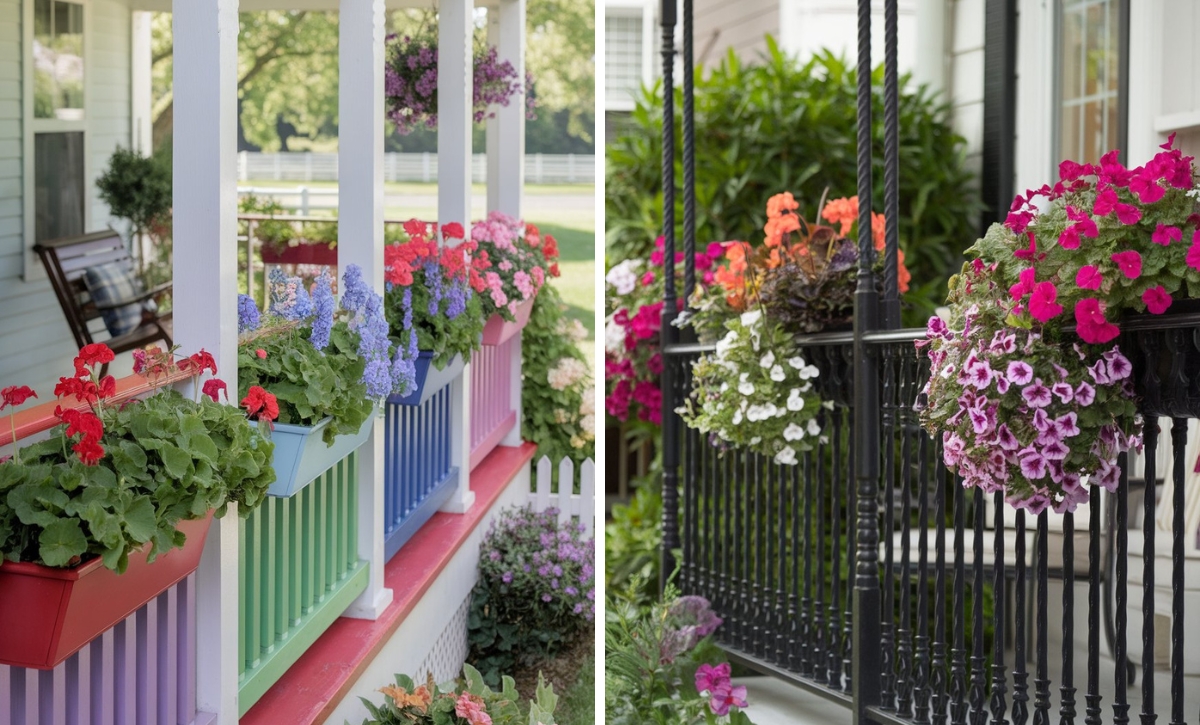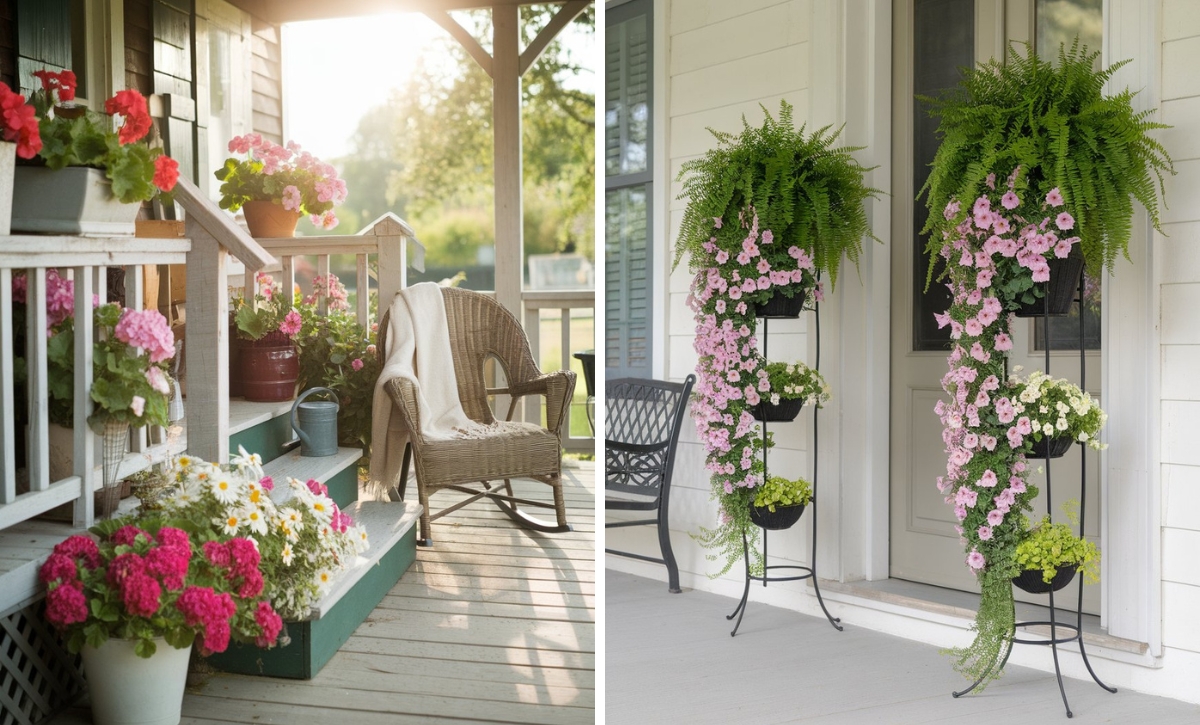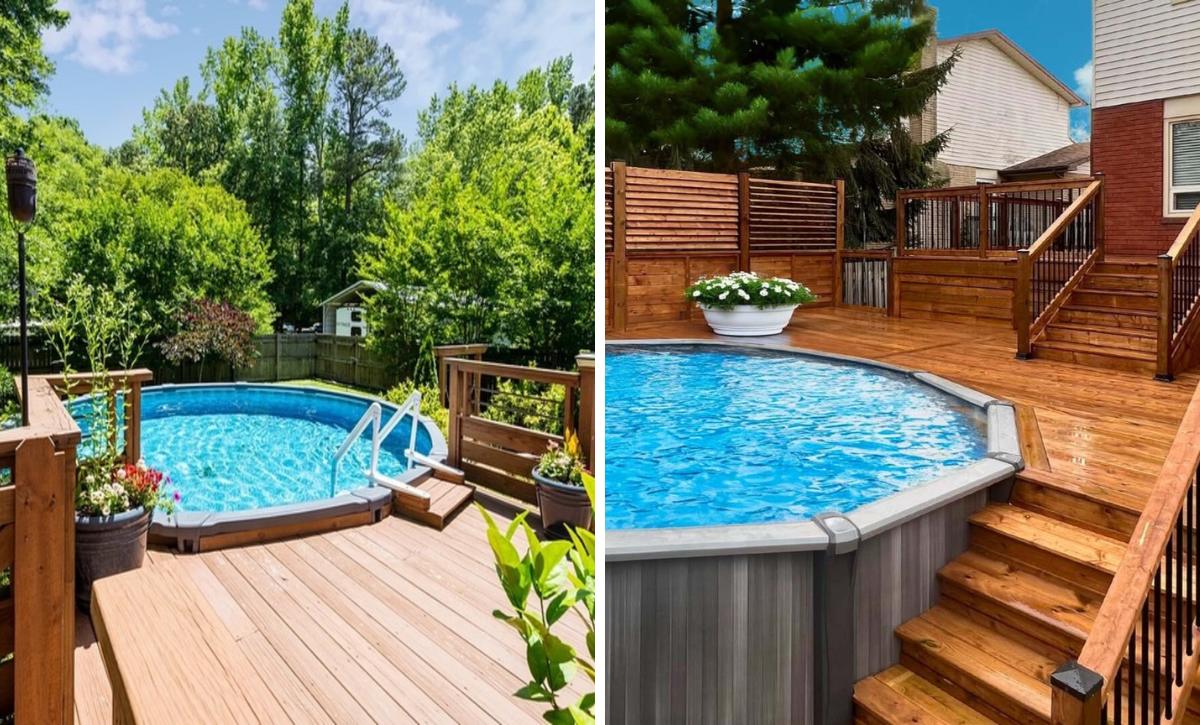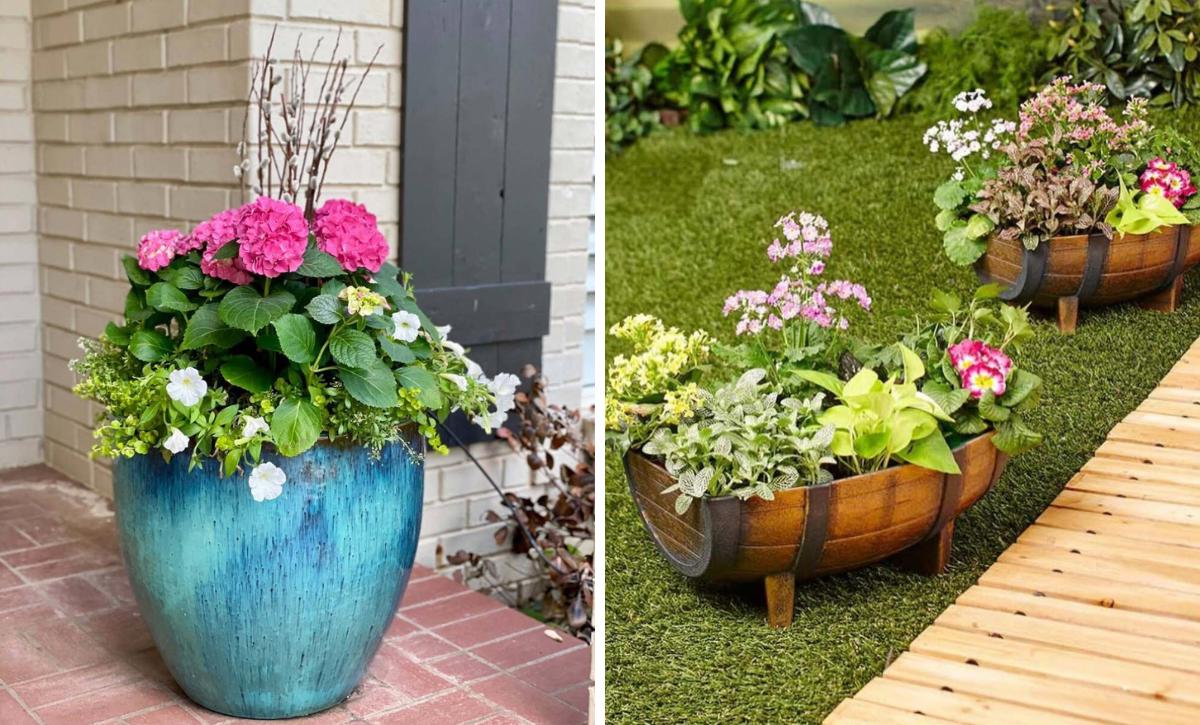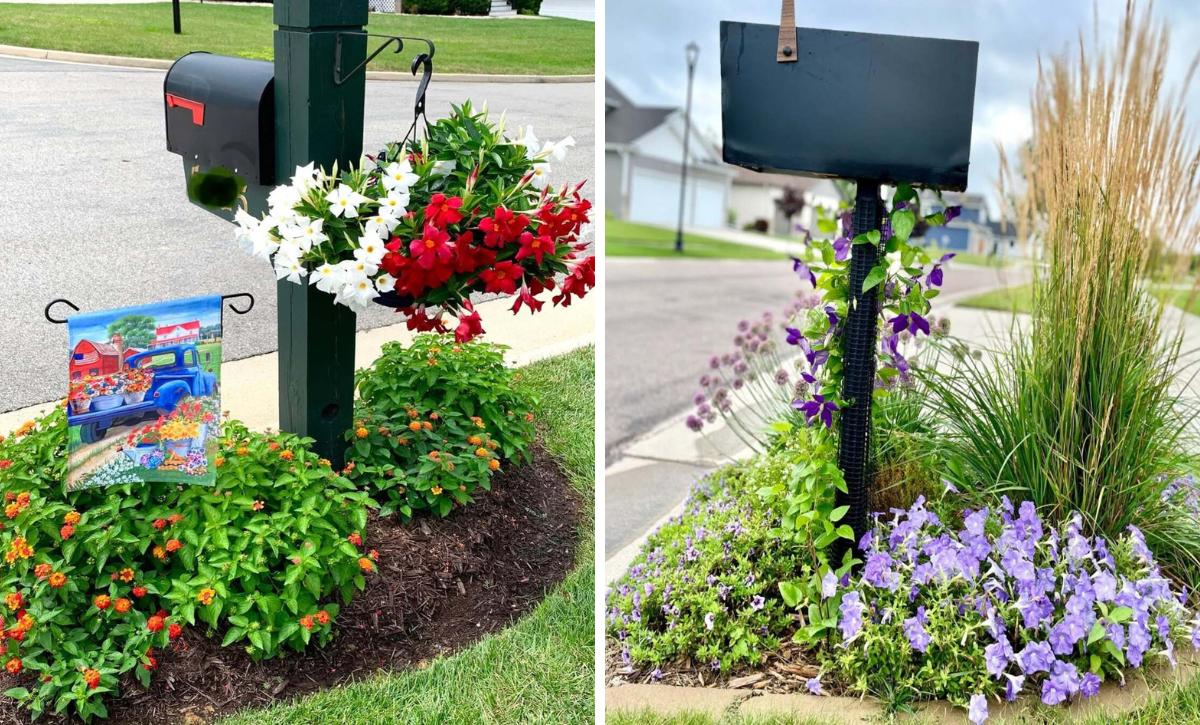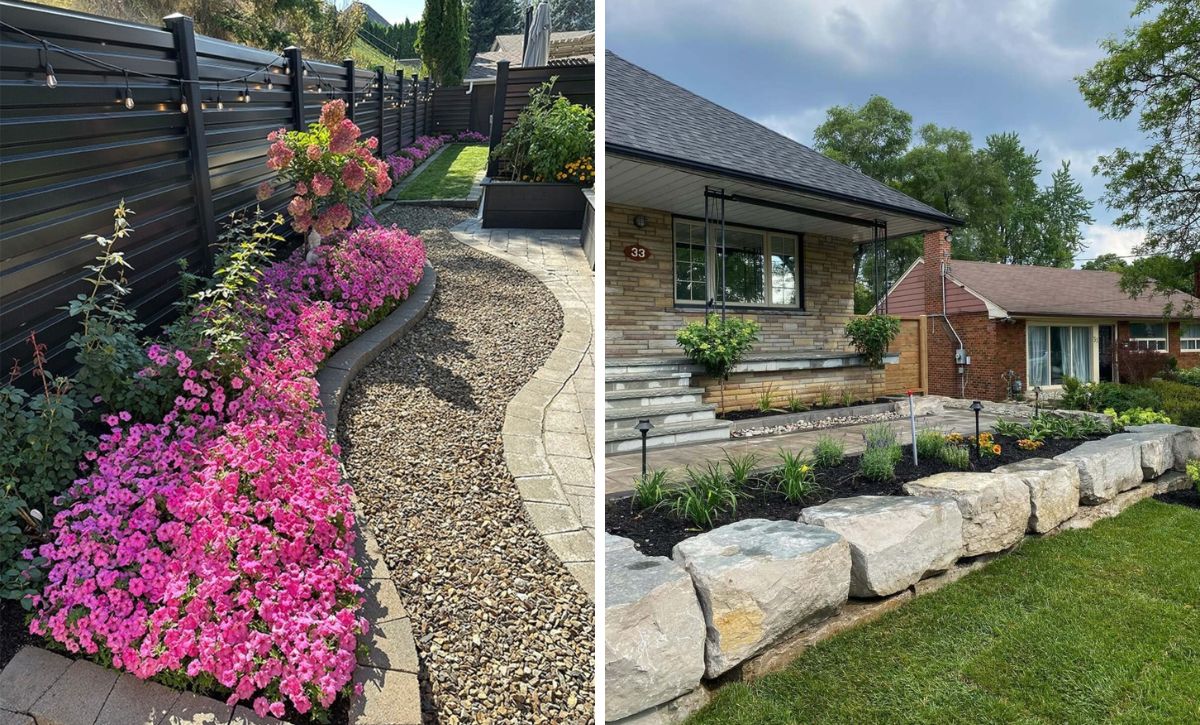Creating a rock garden sounds challenging, but sometimes, it is easier than you might think. The way rocks blend with flowers and plants makes it a tempting idea to try some rocky gardens.
Whether you have a sprawling backyard or a modest balcony, rock gardens allow you to express creativity and connect with nature. This post will explore 28 game-changing rock garden ideas tailored to transform your garden into a dream space.
These ideas cater to every style and space, from minimalist designs with sleek, angular rocks to lush, plant-filled arrangements that mimic natural landscapes.
Get inspired by these innovative and stunning rock garden concepts that are visually appealing and easy to maintain.
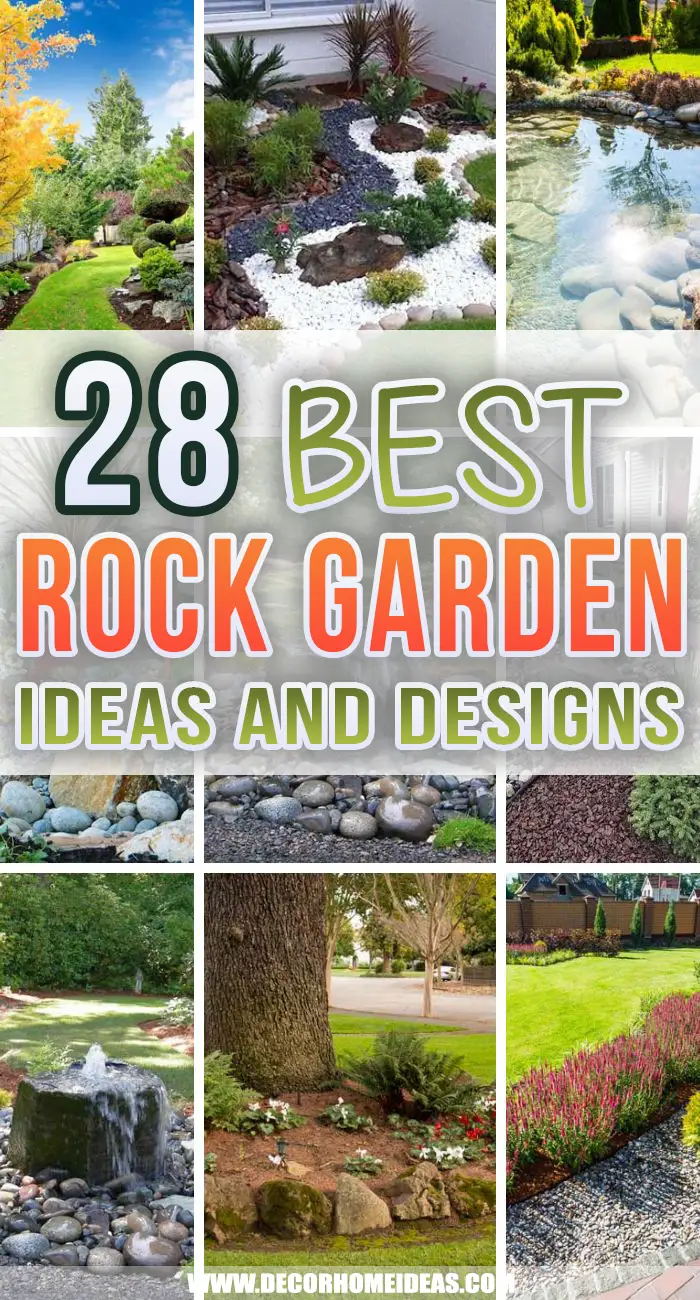
1. Rocks Around Stepping Stones
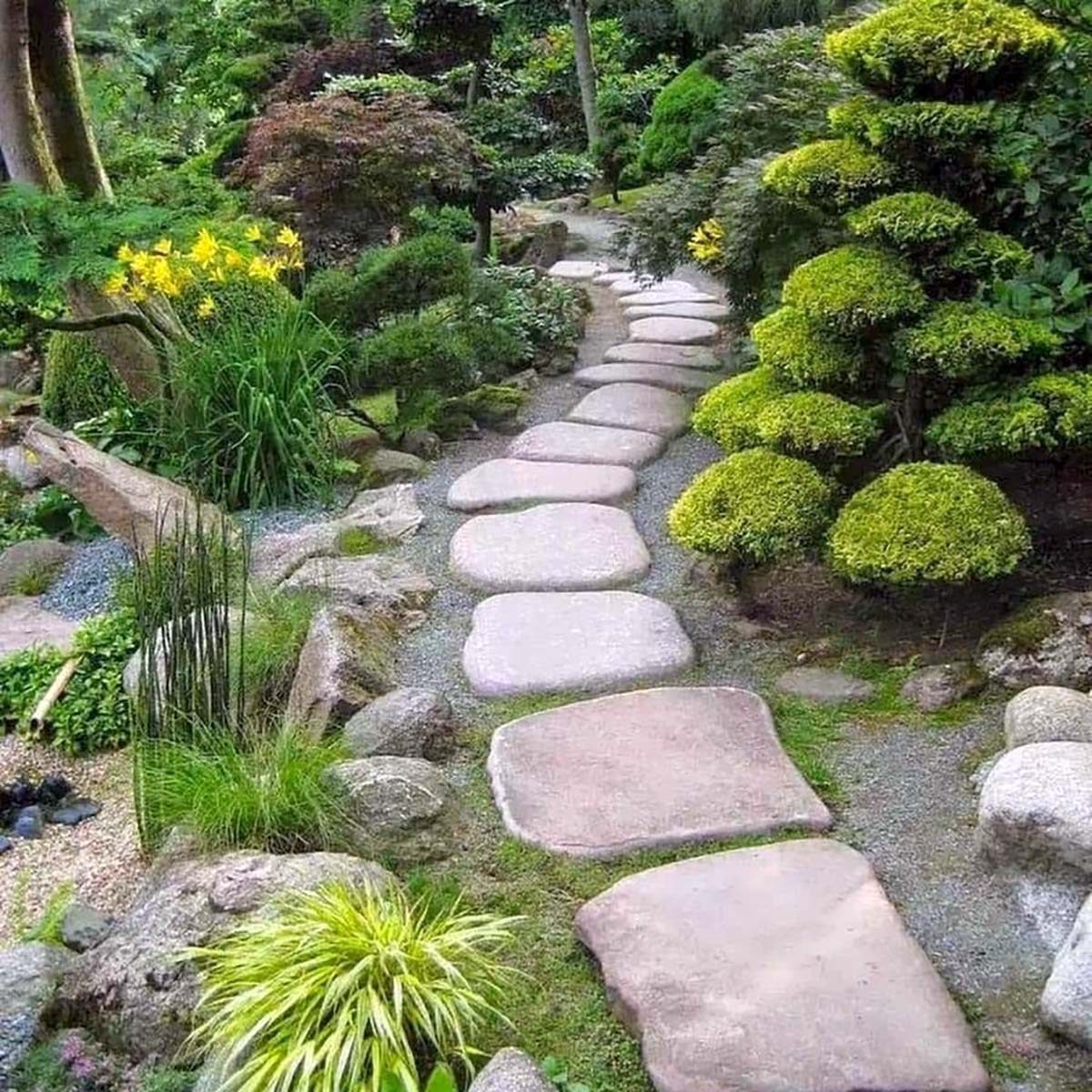
Lay out some rocks around big stepping stones and mix them with greenery.
2. Rocky Garden
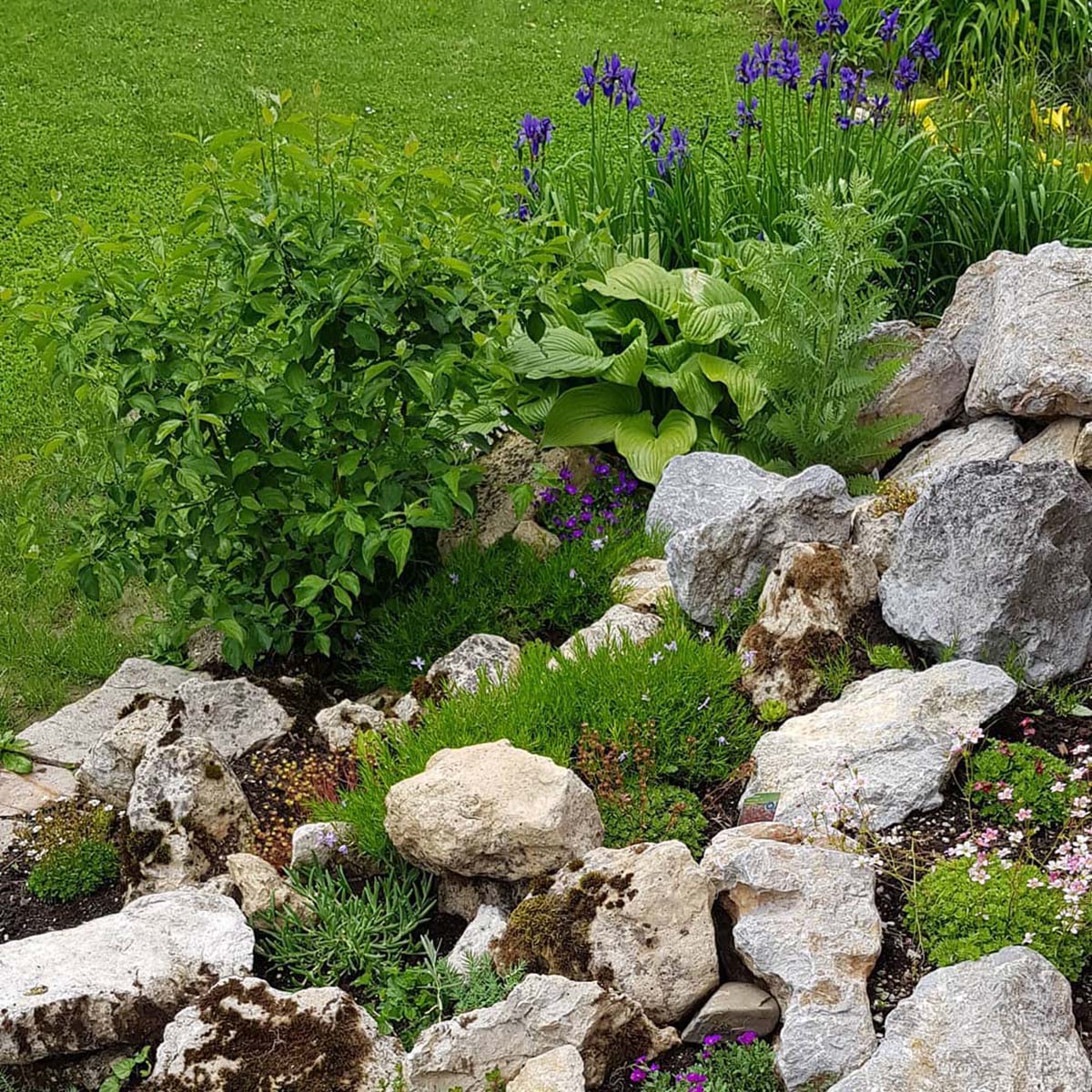
This rocky garden gives some extra touch to the rest of the garden, and it connects with the nature
3. Rock Garden Bed

This rock garden has a little of everything. Larger rocks add weight to the area. Alpine plants peek out among the smaller rocks
A low rock wall added height, which created a transitional space between the grass and the brick and iron perimeter fence.
4. Dry Riverbed Path

This garden idea flips the script on a dry riverbed by using stepping stones at the bottom to create a path that flows along a row of large river rocks. Low-growing alpine flowers add color.
5. A Rock Garden Creates a Courtyard
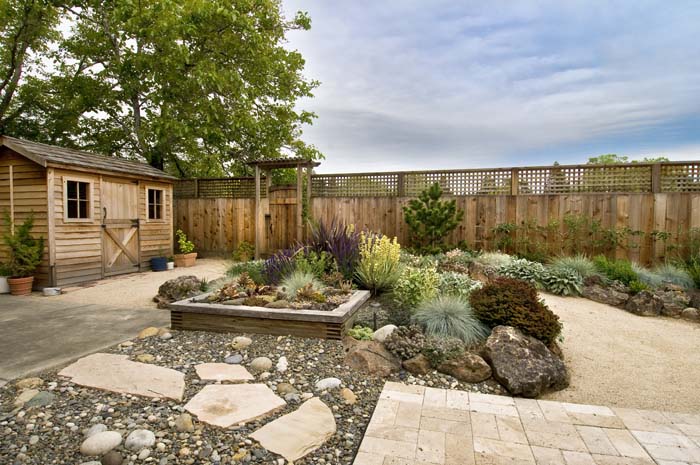
A desert rock garden can be used as a transitional space between areas.
The center was built up and secured using large rocks. As the rockery plants grow, their roots will also help secure the garden bed.
6. Quarry Rocks Become Stairs
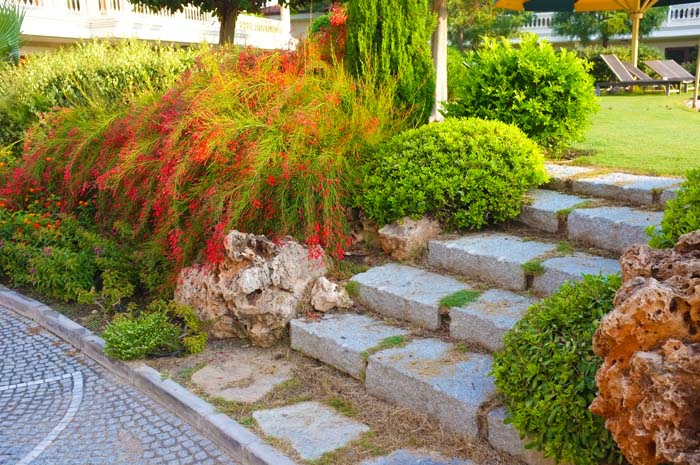
Many landscaping ideas include stepping stones and large rocks. These steps are cut from quarried stone.
7. Build a Pond
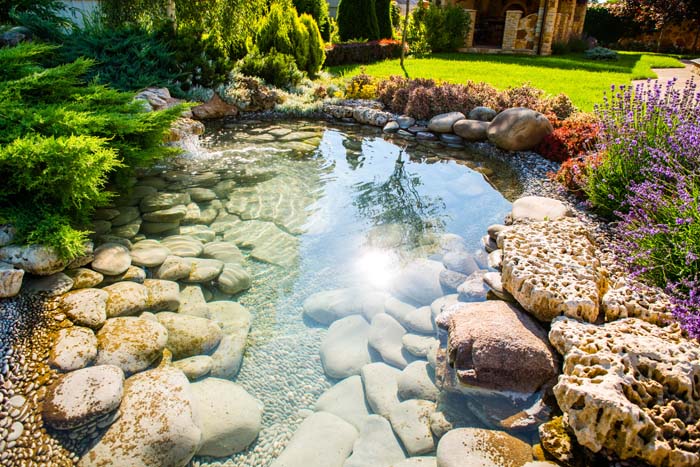
A step up from a rock garden with a dry riverbed is a garden with a water feature.
A shallow pond was built near the grass using river rocks and pea gravel.
8. Use Contrasting Colors
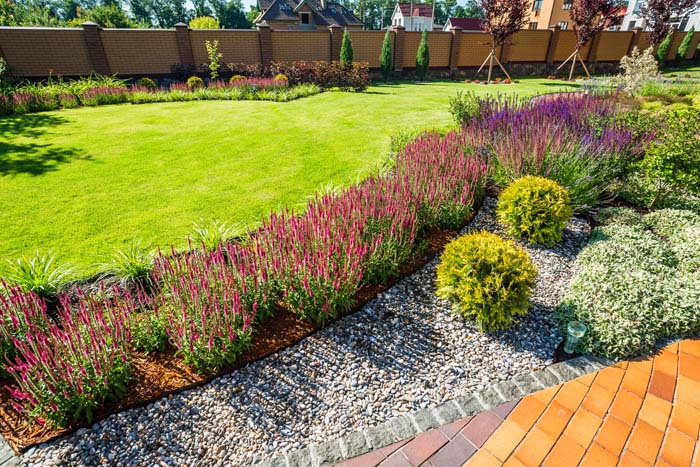
A stunning idea is to plant a single rock garden plant in a section of your rock garden.
Light-colored pebbles contrast with the red plant in the other section of the garden bed. Try a drought-tolerant plant such as red salvia or red Texas sage.
9. Make A Traditional Zen Garden
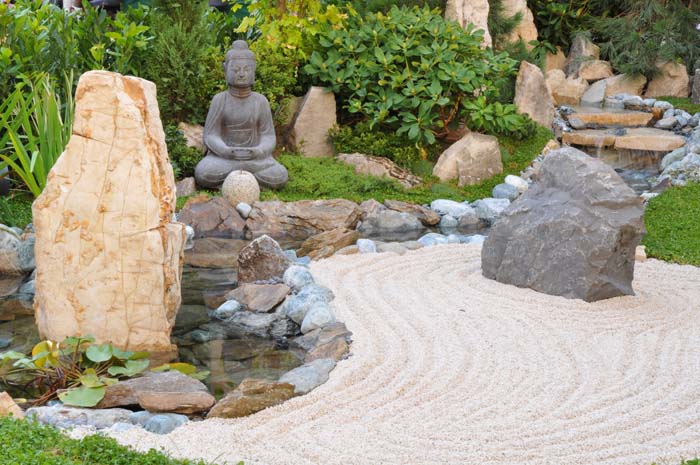
A Japanese rock garden is an elegant design alternative to a traditional garden.
If you’re considering this garden idea, remember that a Zen garden typically includes sand swirling around large rocks and a water feature like a pond or waterfall.
10. Rock Garden With Drought Tolerant Plants
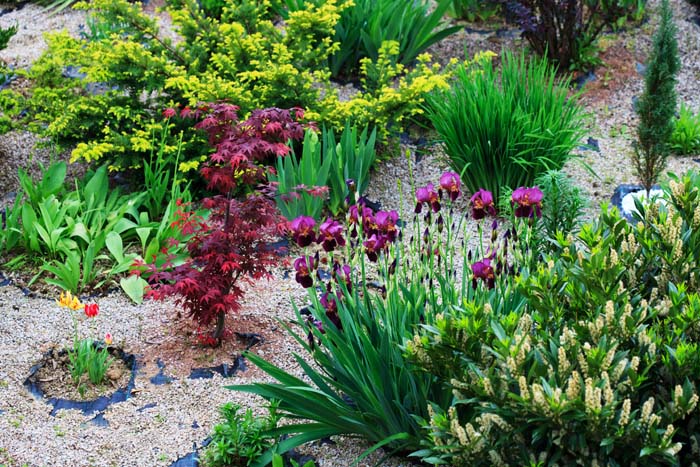
Ornamental grasses and alpine plants bring color and texture to this rock garden.
11. Include a Grass Pathway in a Rock Garden
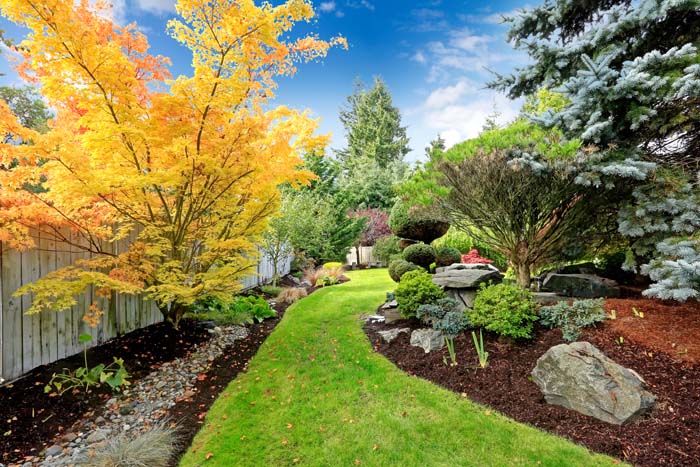
If you know a rock garden design is the idea for your yard but hate giving up the lawn, why not include a small section of grass?
This garden grows a path that allows you to enjoy the feel of soft grass under your feet.
12. Build a Dry River Bed
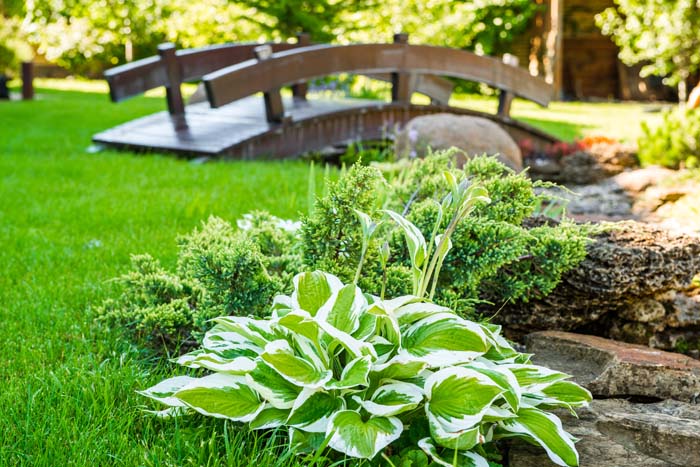
A dry river bed is one of the most appealing upgrades you can make to your landscape. A landscape designer can show you how to include a water feature like this gorgeous stone path lined with rock garden plants.
This rock garden design includes a dry riverbed as a drainage solution.
13. A Rock Garden Around a Tree
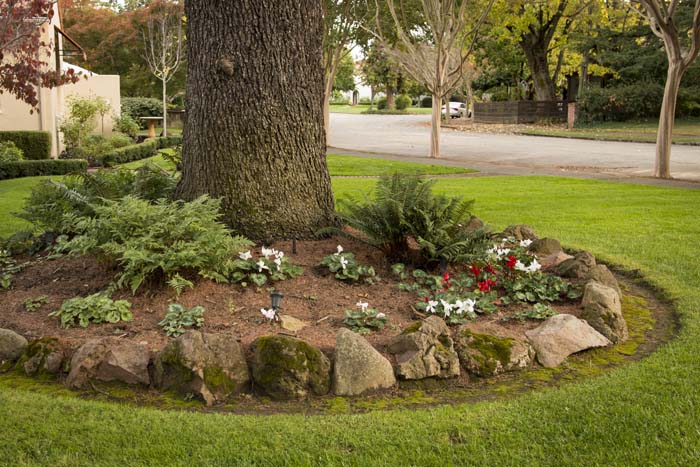
Large rocks add visual weight to the base of this tree.
The inner circle can be filled with a flower bed or low-growing plants.
14. Mix and Match Your Plants
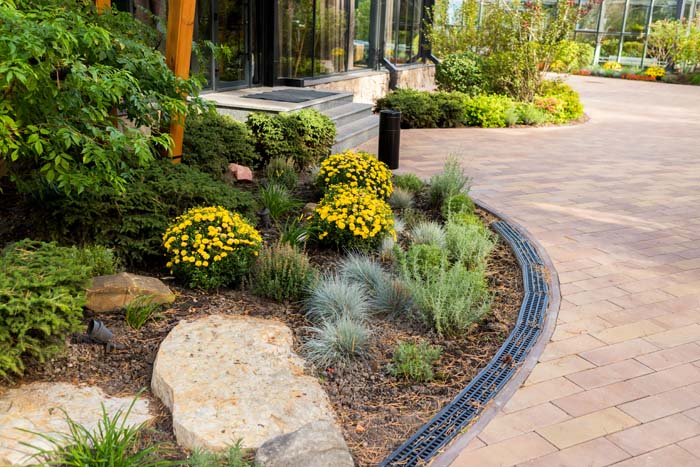
At higher elevations, a rock garden can be combined with alpine plants.
The rocks keep the soil from being lost to erosion.
15. Desert Landscapes Have Color and Character
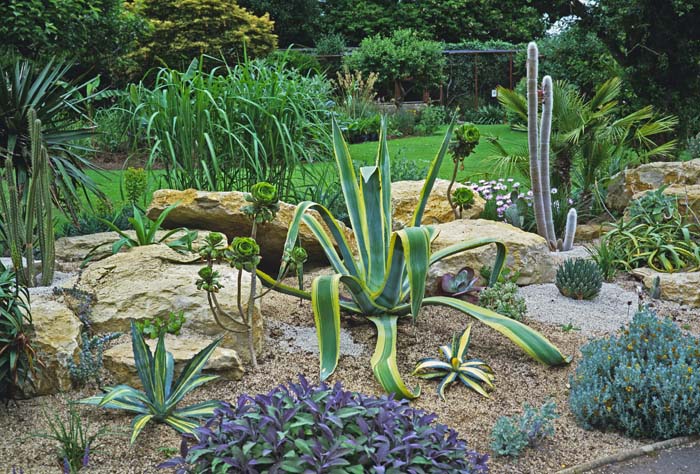
Even if you live in a climate as dry as Las Vegas, you can still develop unique landscaping ideas for your rock garden.
Experiment with drought-tolerant plants that love sandy soil. The pea gravel used here lowers the dust on windy days.
16. Grasses and Plants Add Interest to a Rock Garden
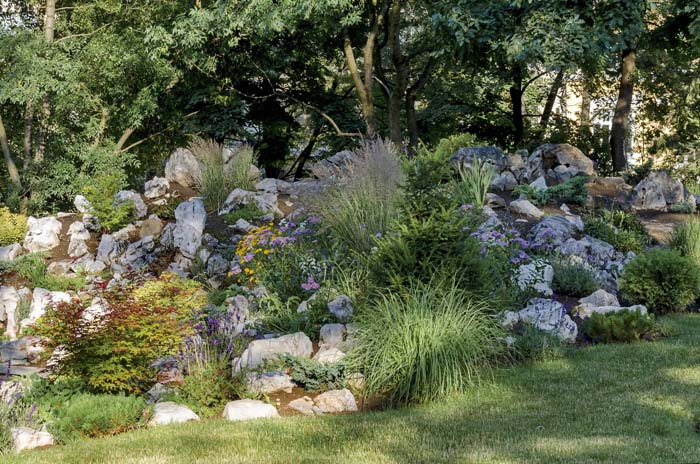
Rockery plants and ornamental grasses turned a pile of large rocks into a colorful rock garden.
17. Try a Pea Gravel Path
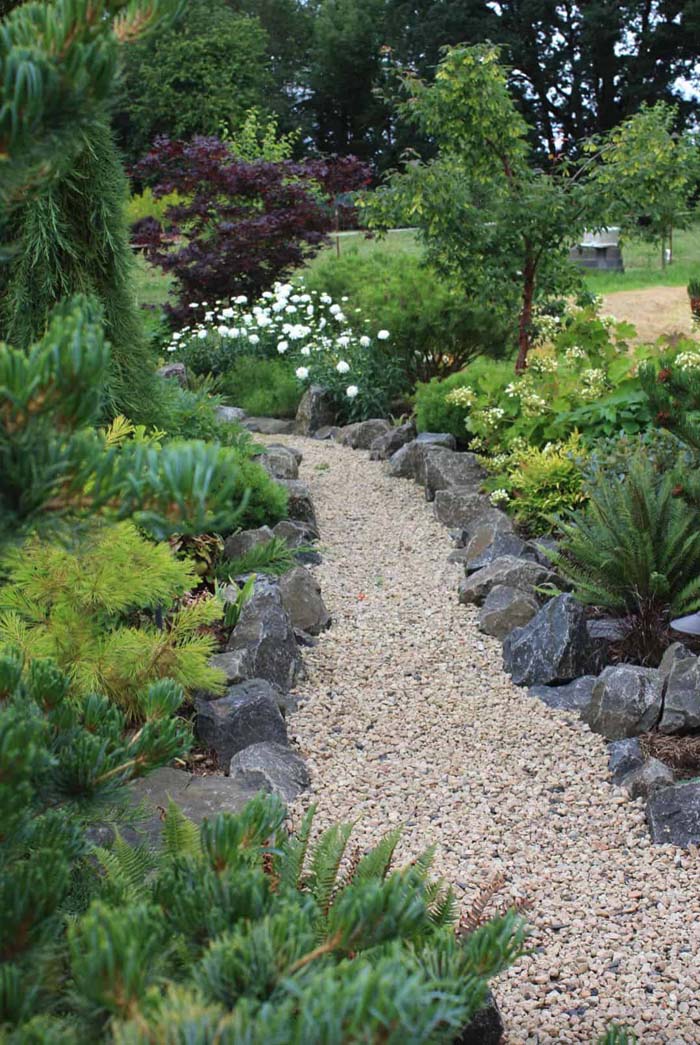
A landscape designer can help you decide if the lower areas of your property would benefit from installing a French drain.
This area is a striking path using pea gravel contrasted by an edging of large black rocks.
18. Rockery Plants in a Rock Garden
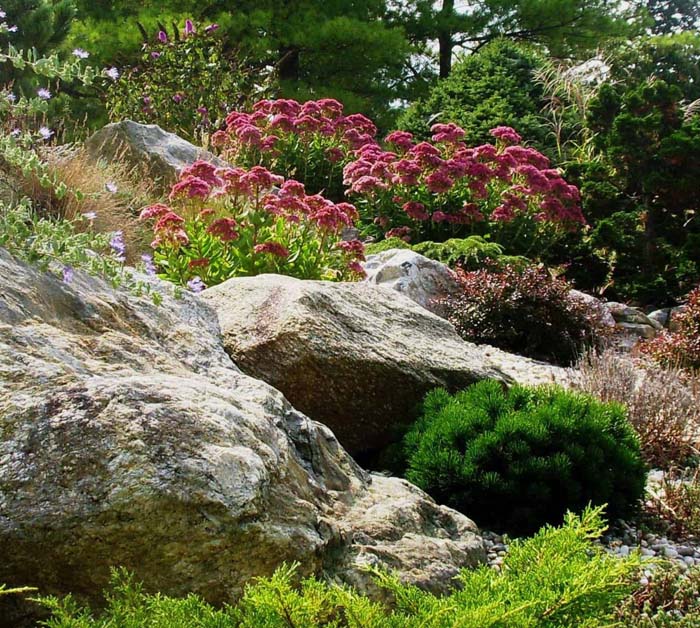
If your landscape is filled with large rocks, fill the spaces with rockery plants. These plants don’t require a lot of moisture and add lots of color to the area.
via NC Designs
19. Beautiful Succulent Garden
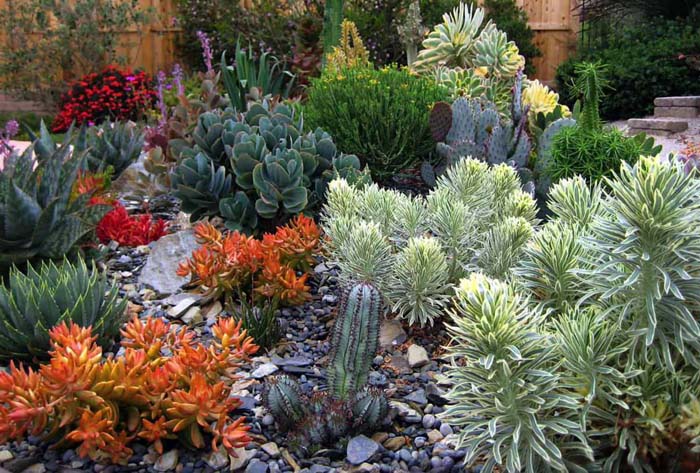
If you live in a warm, dry climate but are unsure you can live without plants, consider a succulent garden. Succulents and cacti thrive in sandy soil and warm temperatures.
via Whitmores
20. Redirect Your Rain Water
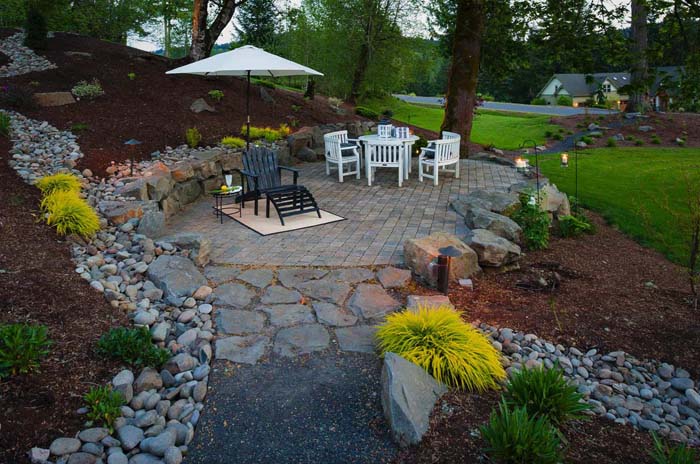
A rock garden is used to control the flow of rainwater. The rocks and plants work together to hold soil and control erosion.
Stepping stones act as a transitional space across the walkway.
21. Water Feature Makes Small Rock Garden Shine
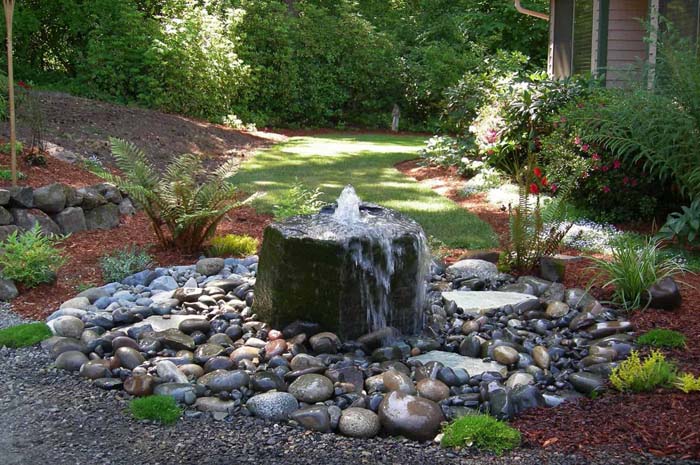
River stones are set around a water feature in a bed of river rocks.
Water fountains are surprisingly easy to add to your landscape.
22. Use Large Rocks for Edging
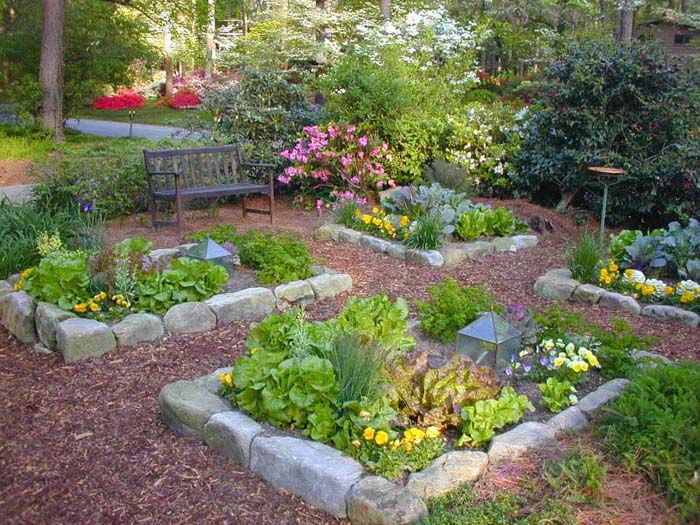
Landscaping ideas that include seating areas are always popular. This one has garden beds acting like little vignettes with edging made of quarried stone.
The outside areas can be covered with pavers or gravel.
via Aden Landscaping
23. Protect Your Garden Within a Garden
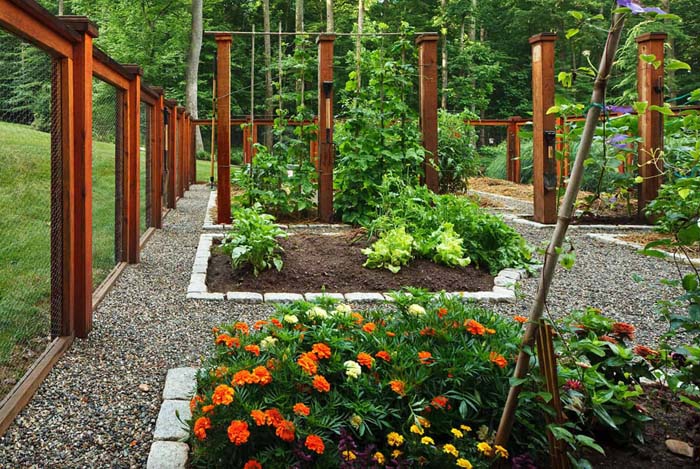
One idea for protecting a traditional garden is to keep it in an enclosed area with a high fence.
Flower and vegetable beds are separated from the rest of the landscape and grown in separate beds. Pebbles are used to separate the beds.
via HomeGardenDesign
24. Create a Dry River Bed With River Rocks
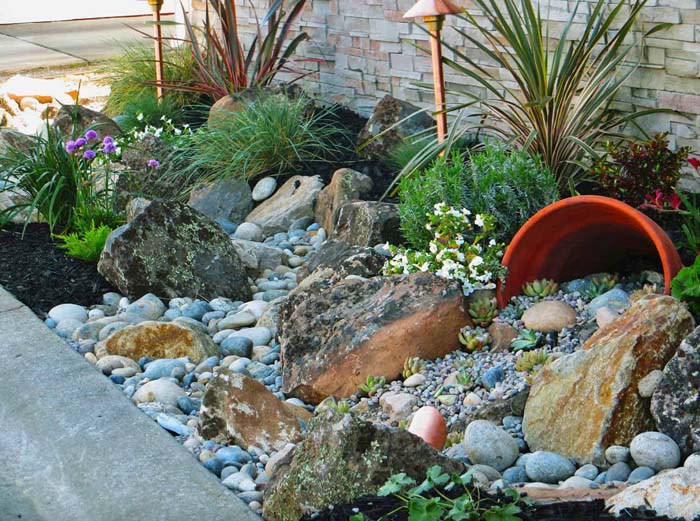
Using river rocks in your rock garden will never go out of style. The smooth stones pouring out of a container into a dry river bed have become an evergreen idea.
25. Rock Garden Looks Like Large Riverbed
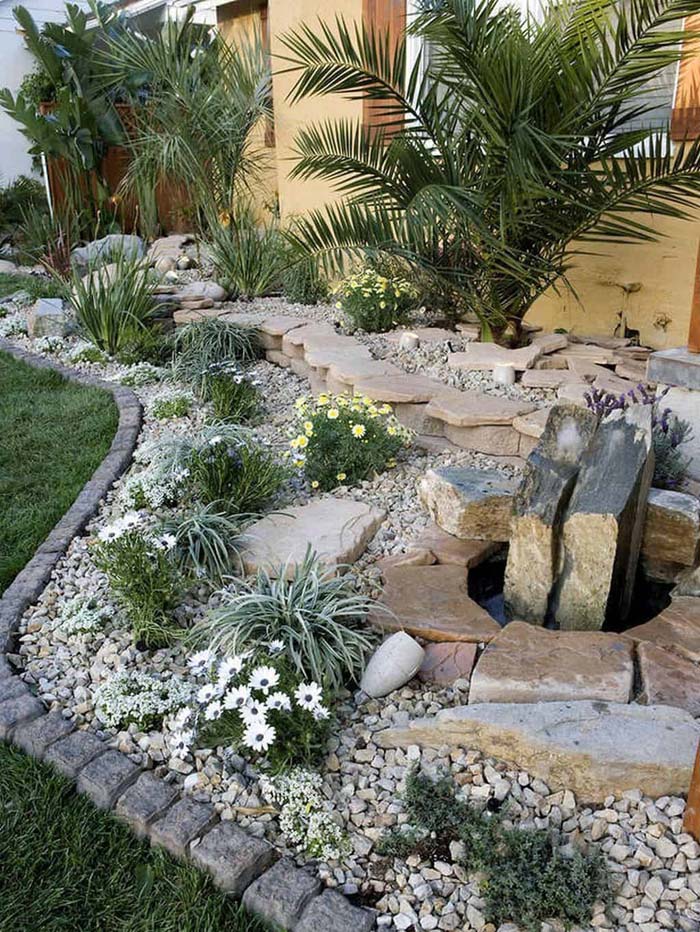
This spectacular rock garden has plenty of ideas you can use in your landscape.
The rock wall adds another layer or height. They use stepping stones to draw the eye to the water feature.
via JPM Landscape
26. Use One Color in Your Rock Garden
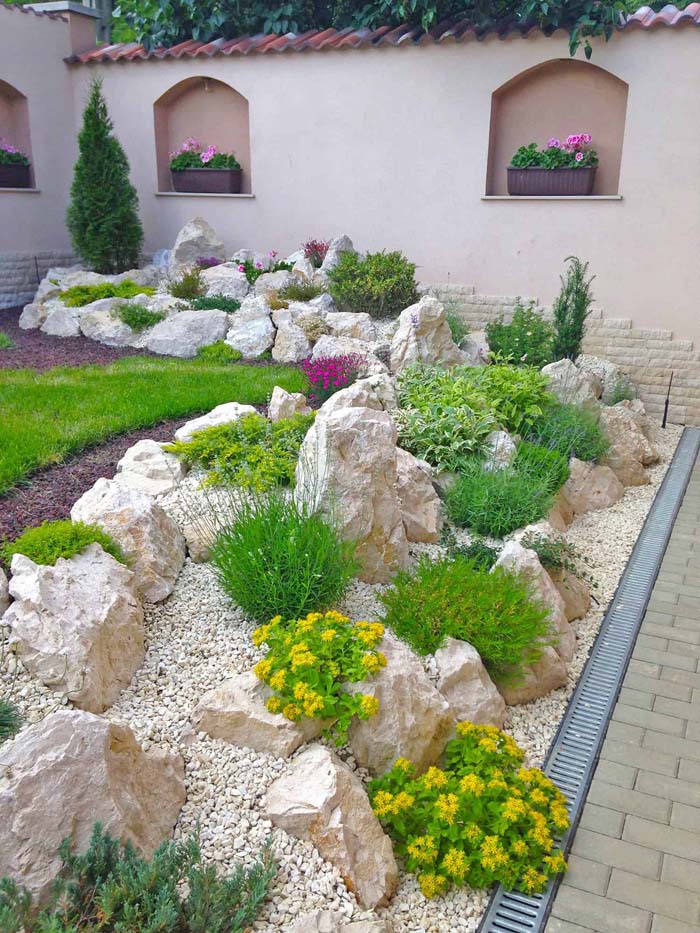
Large rocks add height and texture to this rock garden. It gets its color with the addition of rockery plants.
27. Rock Gardens Extend Traditional Garden Beds
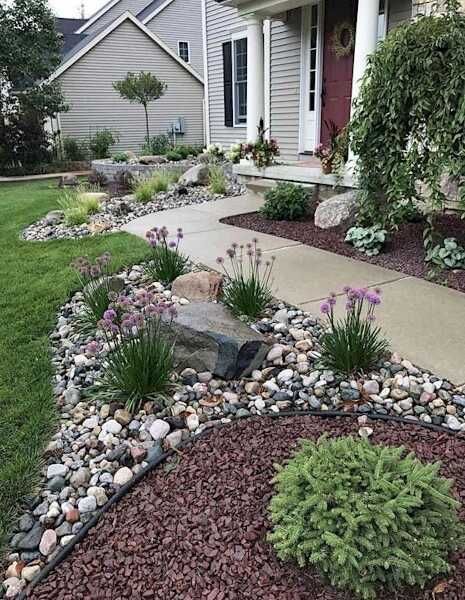
Rock garden design adds another dimension to landscaping ideas.
Using a single species of flower gives this rock garden a unique look.
28. Add a Small Corner Rock Garden
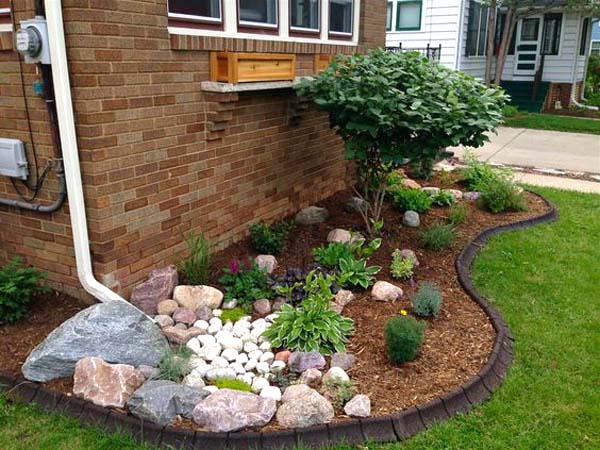
Corner rock gardens are easy to control rain runoff and hide the drain pipe. They’re a beginner-friendly project.
Using larger rocks along the edge works to protect the drain pipe. Smaller white rocks add contrast.
29. Rock Gardens Hide Brown Patches
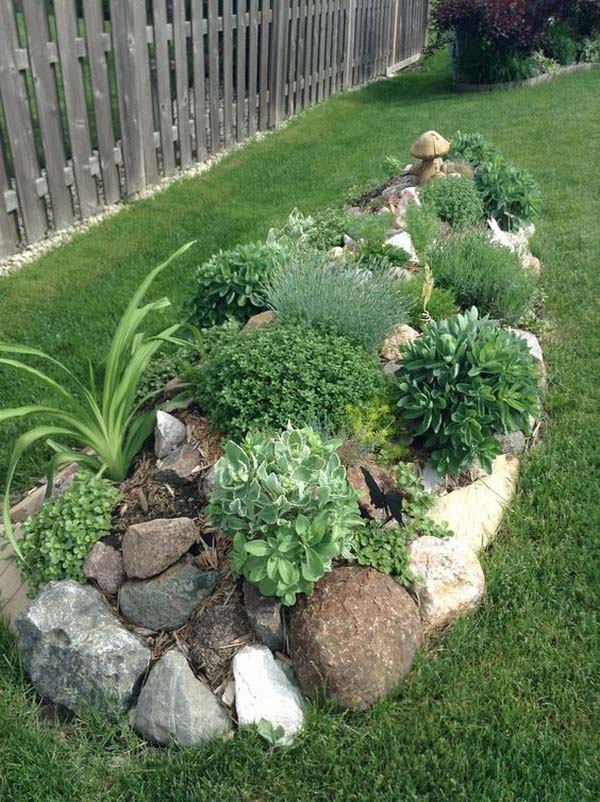
Rock garden ideas sometimes evolve out of necessity. If you have a section of grass in your landscape that is always brown, try creating a rock garden.
Gather large rocks around the edge and build inside using smaller pebbles, stones, and plants like sandy soil.
30. Mix Color, Textures, and Patterns
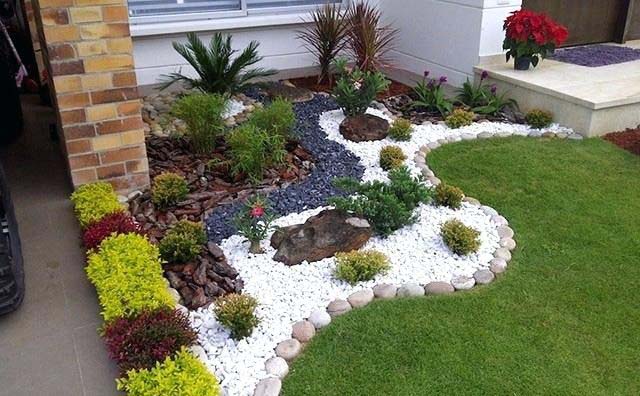
Rock gardening doesn’t have to be big or complex to look amazing. This rock garden has basic drought-tolerant plants. It’s the placement of them in three separate sections of small rocks that create interest.
More About Rocky Gardens
- What can I put in a rock garden?
Different types of plants are drought-tolerant and thrive in sandy soil. Cacti and succulents are the most common. If you don’t live in a warm climate, consider Alpine plants, rockery plants, and ornamental grasses.
- How do you arrange rocks in a rock garden?
The goal is to make them look as natural as possible. Position them like you would find them in an open space. River rocks should have rounded parts facing upward. Smaller rocks naturally drop around larger rocks.
- How do I make a rock garden?
- First, decide what type of garden you’d like and if you want any water features or a particular plant.
- Clear the land and fill it with sandy soil.
- Build from the outside in. The larger stones go on the outside and the smaller rocks are dropped into the center. You can build up or across, depending on your goals.
- Add Plants. If you add plants, try various places among the rocks while still in their containers. At this point, you may want to change up the stones by adding or removing them until you get the look you want.
If you get stuck, consult a landscape designer. They’ll help you overcome any obstacles.

